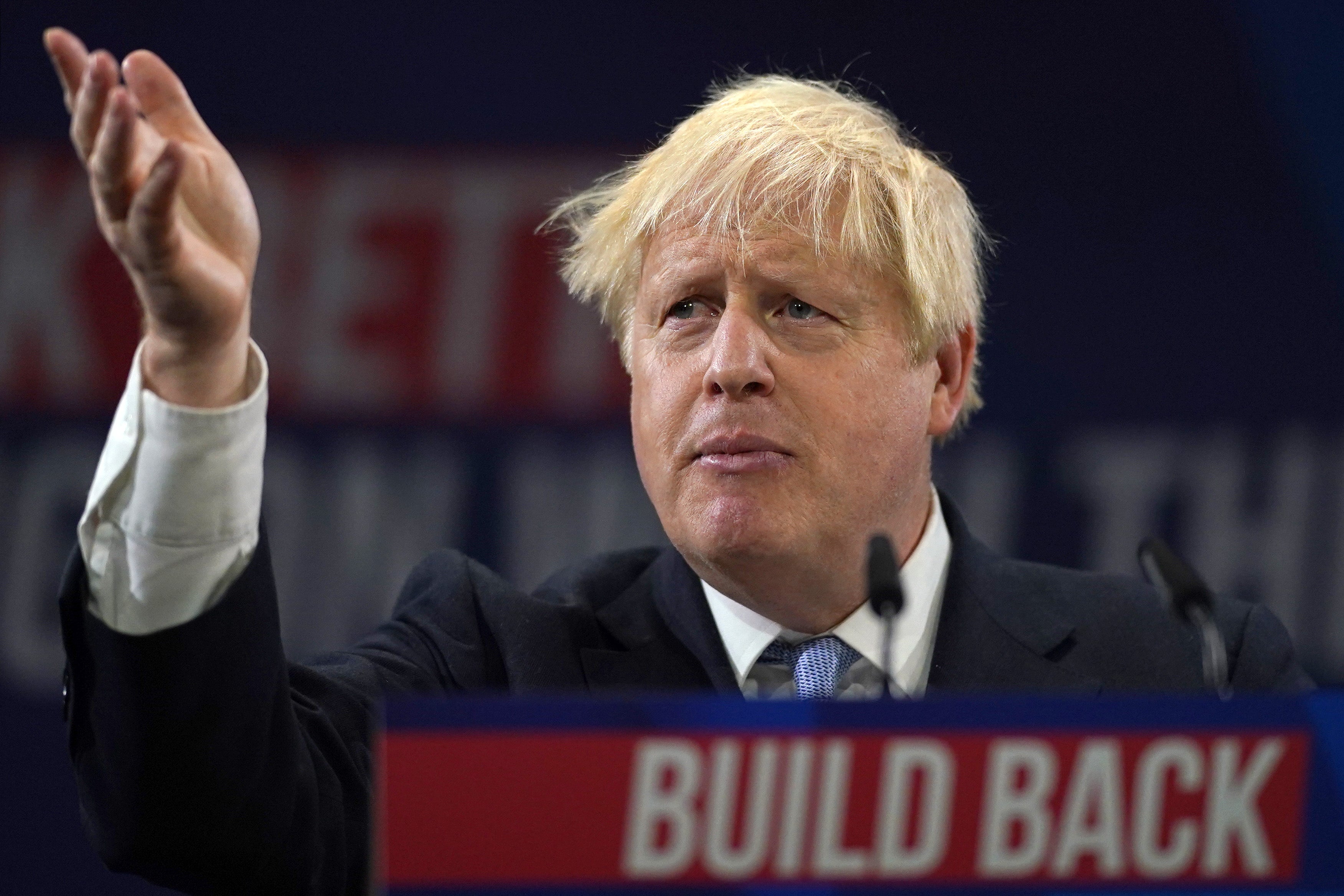Your support helps us to tell the story
From reproductive rights to climate change to Big Tech, The Independent is on the ground when the story is developing. Whether it's investigating the financials of Elon Musk's pro-Trump PAC or producing our latest documentary, 'The A Word', which shines a light on the American women fighting for reproductive rights, we know how important it is to parse out the facts from the messaging.
At such a critical moment in US history, we need reporters on the ground. Your donation allows us to keep sending journalists to speak to both sides of the story.
The Independent is trusted by Americans across the entire political spectrum. And unlike many other quality news outlets, we choose not to lock Americans out of our reporting and analysis with paywalls. We believe quality journalism should be available to everyone, paid for by those who can afford it.
Your support makes all the difference.Boris Johnson has been talking about "levelling up" since at least the 2019 election, but critics say he hasn't sufficiently explained what it is.
His first in-person Tory conference speech on Wednesday was a major chance for the prime minister to put meat on the bones of the slogan he's now been using for years.
The idea is yet to cut through: polling by Opinium in August 2021 found that just 1 in 5 people are clear what "levelling up" actually means.
Did the prime minister succeed in fleshing out the term? On the one hand, Johnson certainly elaborated at length about what "levelling up" meant in theory and the thinking behind it.
But on the other hand, he did not announce any significant new policies to achieve the aim, or explain whether or how his party would actually "level up".
The prime minister said the slogan was about "offering hope and opportunity to those areas that have felt left behind".
But he argued that eliminating this disparity would not just be positive for those areas, but also others where problems are sometimes caused by their success – or the "the sheer lust of other people to live in or near" them.
These problems included environmental concerns, overcrowded infrastructure, and "ugly new homes", he said, which could be a drag on productivity.
And he suggested that the issue was more significant than just a north-south divide, arguing that there are "aching gaps within the regions themselves". This is certainly borne out by the figures.
"It helps to take the pressure off parts of the overheating South East while simultaneously offering hope and opportunity to those areas that have felt left behind," he said.
And the PM argued that this would help improve productivity across the board and make the country richer.
"The idea in a nutshell it is that you will find talent genius flair imagination enthusiasm everywhere in this country all of them evenly distributed," he told Tory members.
"But opportunity is not, and it is our mission as conservatives to promote opportunity with every tool we have."
This all sounds quite reasonable in theory. But is he really using "every tool that we have"?
When it comes to policy the prime minister essentially had one announcement: a "levelling up premium" worth up to £3,000 to encourage science and maths teachers to head to and teach in more deprived areas of the country.
The policy seems laudable, and may or may not improve the supply of the best teachers in two subject areas. But it is clearly not going to put in motion the kind of fundamental shift in wealth and power the prime minister is talking about. It is also a re-hash of a similar, recently scrapped scheme that covered more subjects.
Notably, before the speech it was heavily briefed that there would be some major transport policy announcement for the north, perhaps a fleshing out of Northern Powerhouse Rail, the east-west line planned to link across the Pennines.
There wasn't one - which rail industry sources interpret as bad news for the scale and scope of any investments the government is planning to make. NRP is a can that's been kicked down the road since George Osbrone was chancellor, and there is still no detailed plan for what it will involve.
The prime minister made a good case for reducing regional inequality and investing in areas that have not been invested in for too long. But until he actually takes action to do this, at the head of the government he leads with a vast majority, it is hard to see how it is more than a slogan.


Join our commenting forum
Join thought-provoking conversations, follow other Independent readers and see their replies
Comments